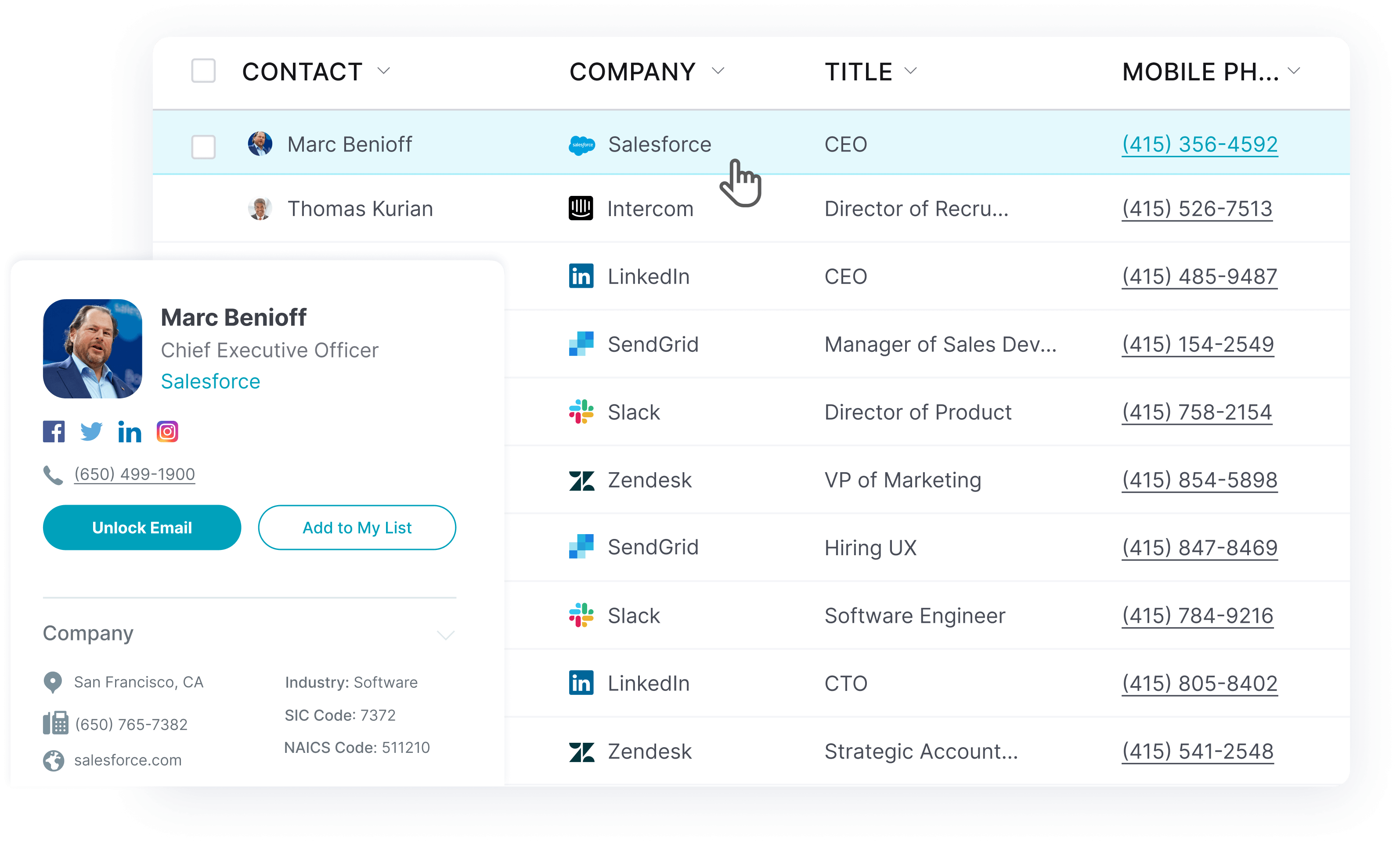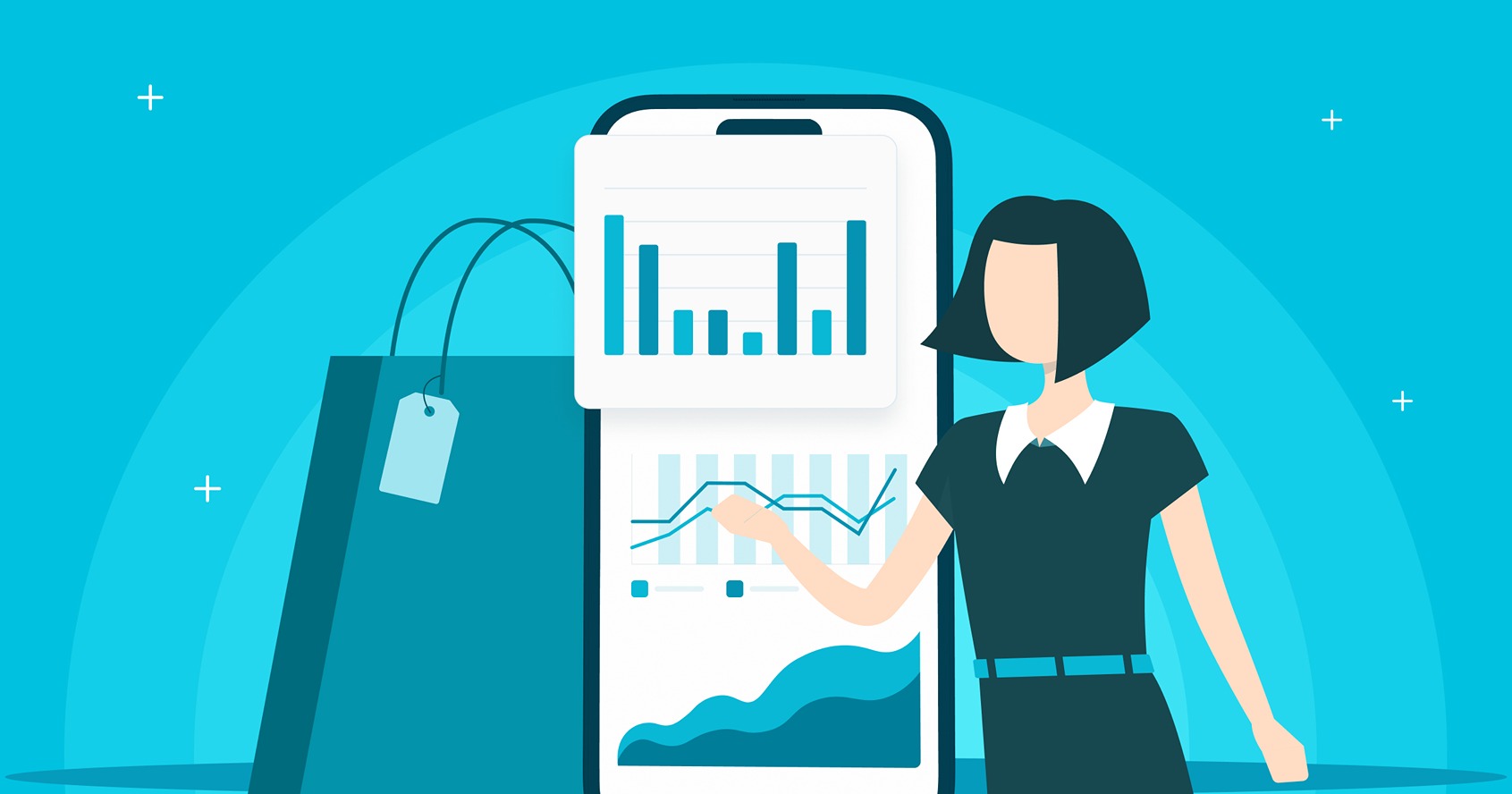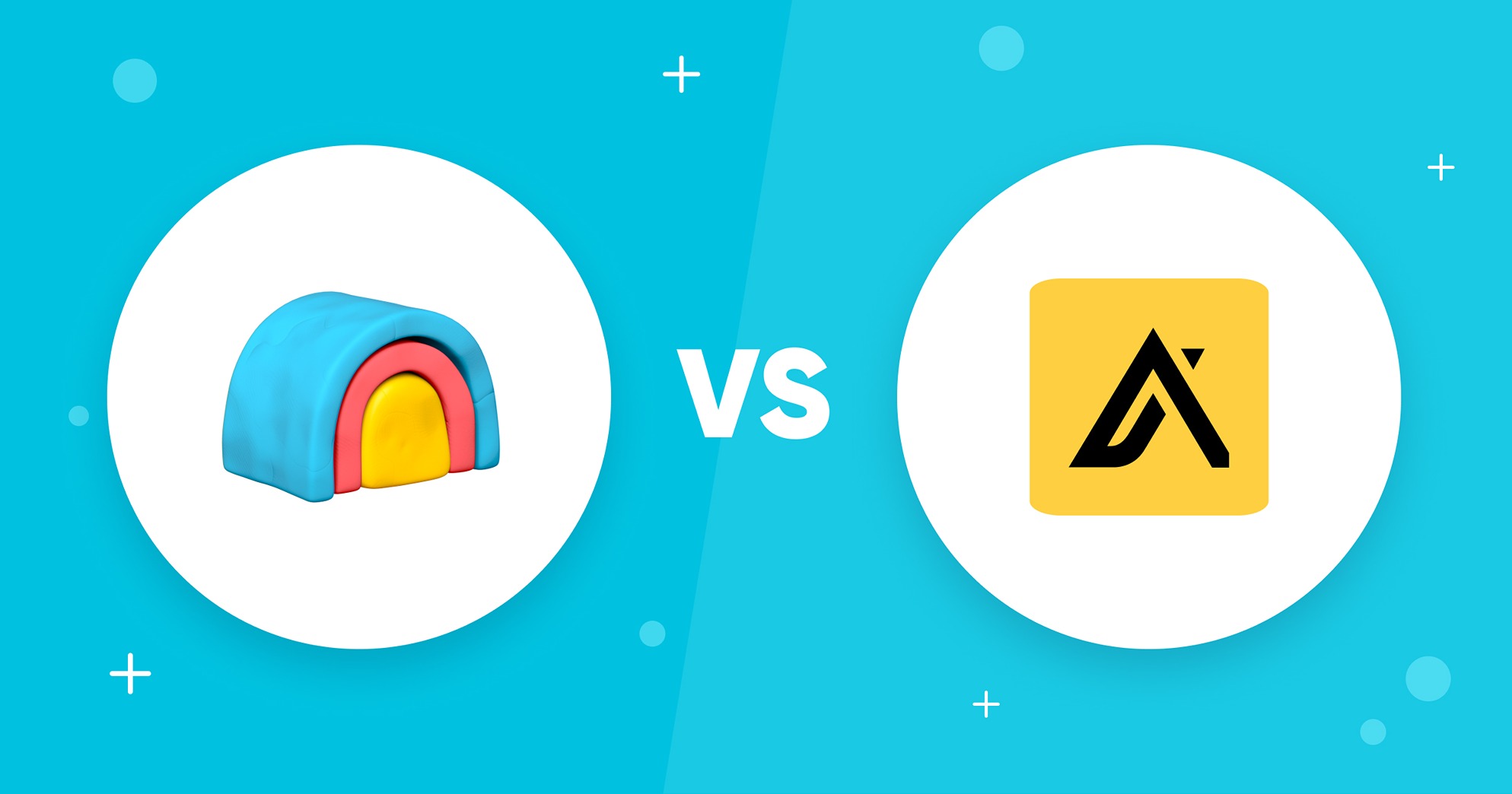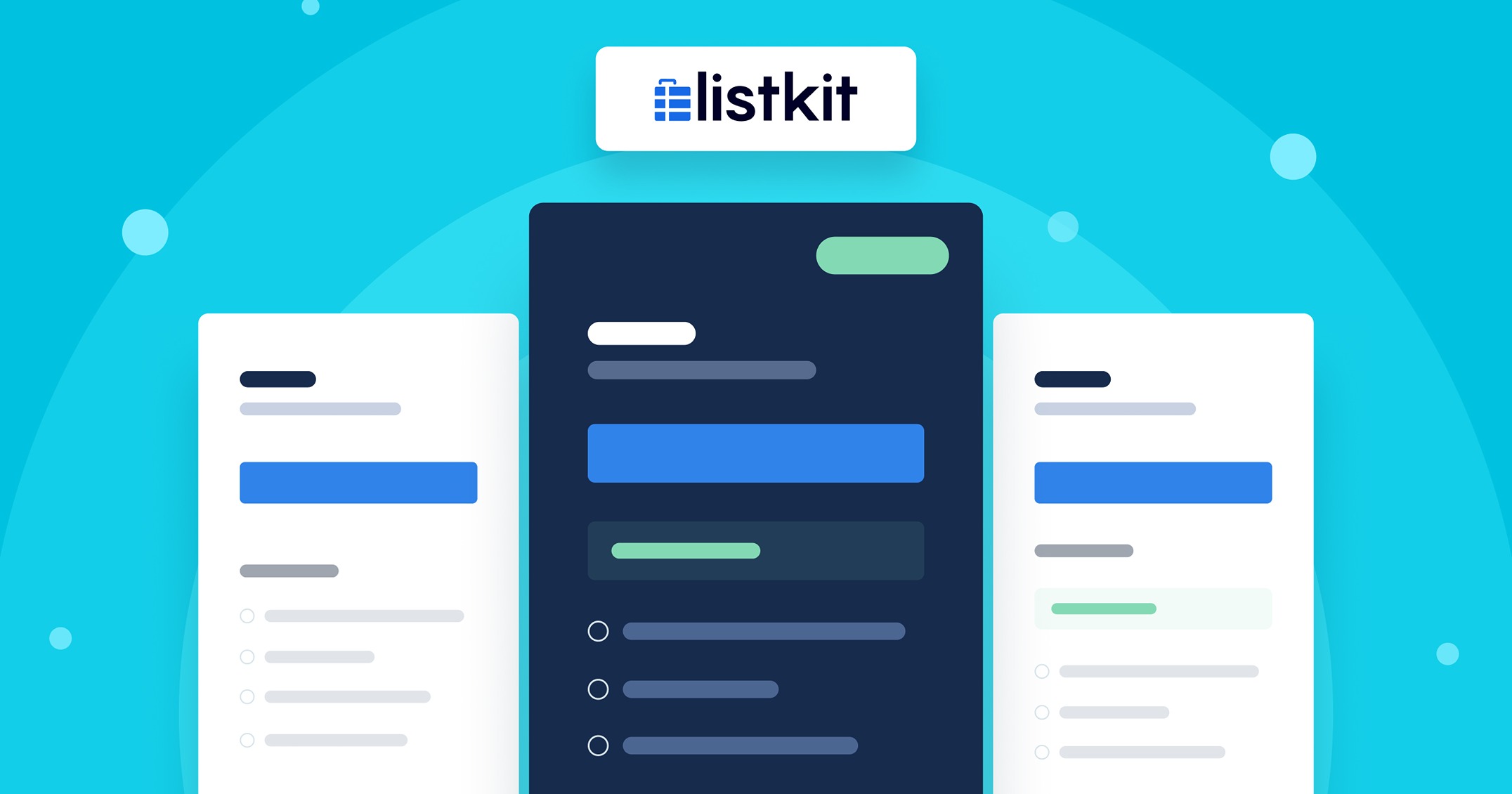UpLead and ZoomInfo are two business intelligence apps companies use to find high-quality leads. Both products are highly regarded by their customer base, but which is better for your business? In this article, we’ll compare UpLead vs. ZoomInfo. This will help you identify which B2B lead generation tool is right for your organization’s needs. In this guide, we’ll compare the following criteria:
- Key features
- Databases
- Integrations supported
- Usability
- Pricing
Not a reader?
👀 Quick watch: We’ve compared UpLead and ZoomInfo, so you don’t have to! Watch the video below and decide for yourself.
After reading this article, you’ll know which software is ideal for your team. Let’s get started.
UpLead vs. ZoomInfo At a Glance
UpLead and ZoomInfo are two of the best B2B lead prospecting tools on the market today. Each platform offers large, high-quality contact databases and many useful features. Both are valuable assets to any organization looking to generate revenue.
ZoomInfo was founded in 2000 and was acquired by DiscoverOrg in 2019. The two platforms were merged, with ZoomInfo remaining as the brand name. This merger unified the best of both software under one platform.
Over the last five years, UpLead has solidified itself within the B2B lead generation marketplace. By prioritizing data transparency and accuracy, it has provided ‘clean,’ valuable leads to its customers.
As both UpLead and ZoomInfo are highly regarded, identifying which is better for your B2B brand won’t be easy. Below, we’ve put together a comprehensive comparison analysis; you should be able to gain some clarity on the issue.
More specifically, the comparison will cover several points of emphasis—five. These include key features, database, integrations supported, usability, and pricing. These key pillars will help determine whether UpLead or ZoomInfo suits your company.
Compare Key Features
UpLead and ZoomInfo are top-rated B2B sales acceleration tools with high-quality contact databases. Both apps offer customers key features that help to shorten sales processes and increase win rates.
Below, we’ve compared the key features of both business intelligence apps. We’ll look at how these take advantage of their databases and benefit the customer.
Key Features of UpLead
UpLead is one of the most capable B2B lead generation tools today. It’s the number one rated solution on G2. This has much to do with its powerful features, allowing users to use its fantastic database.
Some of UpLead’s key features include:
- Targeted prospect lists: Search the extensive B2B database and use over 50+ criteria filters for granular, specific leads.
- Real-time email verification: Contact business email addresses, when downloaded, are verified in real-time.
- Data enrichment: Input your existing data into the platform and fill in the blanks for higher-quality data and intent data.
- CRM integration: UpLead integrates with the most popular CRMs, like Salesforce, HubSpot, and Zoho.
- Google Chrome extension: Helps you scrape contact data from websites and LinkedIn pages.
- Technology tracking: Uncover what technology stacks businesses are using.
These are just some of UpLead’s key features. Others include organizational charts, competitor intelligence, and intent data.
Key Features of ZoomInfo
ZoomInfo is a robust platform with many features that help B2B businesses find high-quality leads. The product offers several applications which deal with different workflows and business processes.
There is SalesOS, MarketingOS, and TalentOS. SaleOS is for the sales team, MarketingOS is for the marketing team, and TalentOS is for recruitment. Because we’re comparing ZoomInfo with UpLead, we’ll focus on SalesOS.
The features of SalesOS will also depend on which pricing plan you’ve purchased. There are Professional+, Advanced+, and Elite+. We’ll cover these further down in this article. Here’s a list of some of the key features available on the SalesOS platform:
- Lead builder: Create granular targeted contact lists for accurate lead generation campaigns.
- Org charts: Helps to understand the decision-making structure of companies you’re targeting.
- Accurate contact information: Regularly updated validated email addresses and direct dial phone numbers.
- Real-time purchase intent data: Take advantage of high-quality, accurate data thanks to contact and website tracking.
- Google Chrome extension: The ReachOut Google Chrome extension scrapes data from LinkedIn and websites online.
These are just some of the features available on the ZoomInfo platform. There are several other attributes included with the suite. ZoomInfo has a ton of competitors nowadays.
UpLead vs. ZoomInfo Databases
The next point of emphasis for comparison is the databases—arguably the most important aspect of a B2B lead generation tool. This includes not only the size of the databases but also reliability, quality, and guarantees.
UpLead’s Data
The UpLead database has 160+ million B2B contacts with email addresses from over 200+ countries across several industries and markets. It covers 16+ million global company profiles and tracks 16,000+ different technologies.
Customers can search through the database, applying search criteria filters to narrow the results and create more granular leads. Targeted prospect lists can be put together thanks to these search criteria filters, some of which include:
- Job title
- Industry
- Management level
- Business Type
UpLead has a stringent, 8-step data collection and verification process. First, a search is conducted, and millions of public documents are analyzed. To supplement this data, more data is licensed from third-party vendors.
Machine learning and algorithms are then applied to this data to categorize and label it. The data is then thoroughly tested before it’s uploaded to the UpLead database, where customers can access it. Any incorrect data will have been removed during this process.
When customers download data, UpLead performs a last-second, real-time email verification. Any email addresses that fail this will be returned to UpLead’s manual researchers’ team. They’ll go through the data and update the database.
Although it’s not as big as ZoomInfo’s, UpLead’s database is more accurate, boasting a 95% accuracy guarantee. This ensures that your business doesn’t waste resources on leads. No more time wasted on people who’ve changed roles or moved down the decision-making structure.
ZoomInfo’s Data
ZoomInfo is the oldest B2B lead generation software on the market. It has one of the largest contact databases, including over 129 million business email addresses and 50 million direct dials in the United States.
Globally, that number rises to 113 million emails and 59 million direct dials. A lot of these phone numbers are for high-level contacts. This makes it easier to attain contact information of the key decision-makers at target organizations.
ZoomInfo has an in-house team of 300 human researchers who are combing its database. This helps to ensure high-quality data for its clients.
UpLead vs. ZoomInfo: Integrations Supported
In today’s digital landscape, businesses need technologies to drive efficiency, productivity, and growth. Many brands use several tools, and they all need to work together seamlessly, which is where integrations come in.
UpLead and ZoomInfo both integrate with modern technology stacks. Below, we’ve listed some of the software they integrate with.
UpLead Integrations
UpLead integrates with several different CRM platforms, including Salesforce, Zoho, Outreach, HubSpot, Mailshake, Microsoft Dynamics, Reply, and SalesLoft. It also works with Pipedrive, Insightly, Woodpecker, Lemlist, Close, Copper, and Nimble.
In total, UpLead integrates over 1,500+ different apps using Zapier. Integrations are crucial if you want all the technologies in your stack to run efficiently without interrupting each other.
ZoomInfo Integrations
ZoomInfo integrates into your digital workflow and the other software in your technology stack. Like its competitors, it works with all major CRM platforms, such as Salesforce, HubSpot, Pipedrive, Outreach, and Zoho.
The number of total integrations is very large. The ZoomInfo marketplace can be used to identify what software works with the lead generation platform. You search by category; for instance, you can look at marketing automation, mobile apps, and website optimization.
UpLead vs. ZoomInfo: Usability
The most robust, powerful tool is worthless if a user can’t figure out how to work it. The longer it takes a user to understand how to use software, the longer the onboarding training will be. Because of this, we’ve included ‘usability’ in our comparison.
UpLead Usability
The UpLead user interface is intuitive and easy to use. Anyone can learn to use it in mere minutes, minimizing the onboarding and training the software requires. Your sales team can immediately begin lead campaigns, wasting no time.
ZoomInfo Usability
ZoomInfo’s user interface makes for a smooth user experience. Users can easily search for leads from the database and make customized and tailored prospect lists thanks to search filters. The layout of the tool is well-designed, making for effortless navigation.
UpLead vs. ZoomInfo Plans & Pricing
The last point of emphasis for this comparison is plans and pricing. How much a software tool costs often determines whether it’s ideal for a business. UpLead and ZoomInfo are two B2B intelligence apps that differ substantially in price.
Below, we’ve outlined the plans and pricing for both tools.
UpLead Plans
UpLead has straightforward, transparent pricing on its website. You know exactly how much you’re paying and what you get for that amount. There are three basic UpLead fixed-price plans: Essentials, Plus, and Professional.
There’s also a customizable ‘Enterprise’ plan and a free trial. The Enterprise plan is for larger-sized SMBs and enterprise-level organizations. Below, we’ll cover each fixed-price plan and the free trial.
Essentials
The Essentials plan is the cheapest, costing $99 per month. You can also buy annually for $890, which comes to $74 per month. You’ll save more but have to pay for the entire year.
With the Essentials plan, you’re given 170 monthly credits to use. But, if you’re paying for a one-year contract, you’ll get 2,040 for the entire year. Each credit is a single lead. You can buy additional credits if you use them up.
The features include verified emails, phone numbers, and mobile direct dials. You also get access to the Google Chrome extension, which you can use to scrape LinkedIn profiles and websites.
This plan is ideal for businesses that don’t need many leads, benefitting from a flexible package to match their growth. These will be smaller startups and SMBs.
Plus
The Plus plan is the intermediate plan, costing $199 per month or $1,790 for a one-year contract. By purchasing the annual contract, you cut the per-month cost to $149. Depending on your pricing, you get 400 credits per month or 4,800 per year.
The features you get on top of those in the cheaper plan include data enrichment, technographic, and advanced search filters.
The Plus package is ideal for larger organizations beginning to grow and needing leads to scale.
Professional
The Professional plan comes at $399 monthly and gives you 1,000 credits. Annually, you’ll pay $3,590 upfront and get 12,000 credits to use over the next year. Unlike the other, cheaper plans, a Professional account is considered a ‘team’ account.
This means you can use up to 5 users, whereas you’re only allowed 1 with the Essentials and plans. Each additional user will cost an extra $60 per month.
This plan provides UpLead’s complete functionality and suite of features. You’ll get search criteria filters, intent data, and competitor intelligence, among other things.
The professional plan is the big ticket to pricing plans. This will be your plan if you deal with tens of thousands of clients. However, if this isn’t big enough, you can contact a sales rep and get a customized Enterprise plan.
Free Trial
The UpLead free trial gives you 5 free leads and one week to use the platform. You’ll have access to all the app’s features, including those from even the most expensive plan, such as the competitor intelligence feature.
ZoomInfo Plans
ZoomInfo’s SalesOS platform has three basic pricing plans: Professional+, Advanced+, and Elite+. Although there’s no price stated on the website, our research has uncovered that the cheapest plan is $15,000 yearly. All ZoomInfo contracts are annual, one-year contracts too.
However, this is just a minimum price; you’ll need to give ZoomInfo your business information for an accurate quote. Features and functionality determine the price, the number of licenses, and credit usage.
Like many SaaS tools today, ZoomInfo uses a credit system. However, the minimum cost is $15,000, so it’s unsuitable for smaller startups. This defeats the purpose of using credits, which makes a product flexible and scalable.
All three ZoomInfo pricing plans for the SalesOS platform offer different levels of features and functionality. Let’s detail each in further depth:
Professional+
Professional+ is ZoomInfo’s most basic SalesOS plan. It offers many of the primary features of a lead generation tool. You get access to its customer database and can create tailored prospect lists thanks to many filter criteria and direct dial numbers.
As mentioned above, the cheapest Professional+ plan costs at least $15,000 per year. It’s not a month-to-month contract; you must commit to a one-year one.
Advanced+
The Advanced+ plan adds many useful features to the Professional+ plan. These include enhanced data components and insights, which will help you get quicker results.
Organizational charts help you uncover your targets’ employee structure, giving you an idea of the decision-making process. You also get purchasing intent data, website visitor data, location data, and more advanced filtering criteria.
These extra features, available with the Advanced+ plan, will improve your lead generation campaigns. However, this plan is quite expensive. Unlike Professional+, there’s no minimum cost figure. You’ll need to get a quote for more insight.
Elite+
Elite+ is ZoomInfo’s highest-quality SalesOS plan; it includes all the platform’s features for sales teams. Elite+ adds to the features of the Professional+ and Advanced+ plans. This includes real-time buying intent signals, contact tracking, sales automation, etc.
If you want high-quality lead generation campaigns, ZoomInfo’s Elite+ can do it. However, the plan doesn’t come cheap. This option is most suited to larger SMBs and enterprise-level organizations. Reach out to a ZoomInfo sales rep for an accurate quote.
Free Trial
ZoomInfo also offers a free trial, but there’s a catch. You get unlimited access to the search database, but you can only download the contacts if you let ZoomInfo scrape your database.
The Final Verdict: UpLead vs. ZoomInfo?
UpLead and ZoomInfo are both great, powerful, highly rated, and reviewed B2B lead generation tools. Each platform has large contact databases and several useful features. With either tool, your organization can shorten its sales process and generate more revenue.
However, there can only be one winner. After a comprehensive comparison, we’ve determined UpLead as the winner. It’s cheaper and more affordable, requiring no one-year lock-in contracts. Its free trial is also better, as it doesn’t require you to give access to your valuable data.
Even though ZoomInfo’s database is larger, UpLead’s is more accurate, backed by its 95% accuracy guarantee. UpLead is the highest-rated B2B lead generation software on G2—a premier software review platform.
With UpLead, you get better data for a fraction of the cost.
Aside from UpLead and ZoomInfo, several other alternative tools exist in the business intelligence market. Some examples include Lusha, Apollo io, and Cognism. These apps can provide value to your sales team and fuel your organization’s sales pipeline.
FAQs About UpLead and ZoomInfo
If you’ve still got queries about the two lead generation solutions, look below for answers to frequently asked questions:
UpLead is better because it’s more affordable, with transparent pricing plans on its website. ZoomInfo requires you to enter business information to get a quote. Its cheapest plan is $15,000 annually and requires an annual commitment—a one-year contract.
On the other hand, UpLead has three pricing plans: Essentials, Plus, and Professional. Essentials is $99 per month, Plus is $199, and Professional is $399 per month. Regardless of what plan you purchase, it’s only a month-to-month contract.
You can try it out for a month to see if you like it. But you don’t need to do that, as a free trial is available. UpLead also has higher-quality data thanks to real-time email verification. Users often report higher bounce rates when using ZoomInfo. Although its database is larger, ZoomInfo lacks UpLead’s quality.
ZoomInfo is a business intelligence software that helps organizations automate their sales cycle and increase revenue. Its SalesOS platform has several features that exploit its very large B2B database.
A ZoomInfo license costs $15,000 for a one-year contract at the cheapest. This is the Professional+ pricing plan for the SalesOS platform. You’ll need to give ZoomInfo some business information to get an accurate quote.
If your needs exceed what the Professional+ plan offers, you must purchase one of the more expensive plans. The Advanced+ and the Elite+ plans are even vaguer regarding price. Compared to UpLead, ZoomInfo’s pricing isn’t as transparent.
What You Need to Remember About UpLead vs. ZoomInfo
UpLead and ZoomInfo are two valuable B2B lead generation tools from which your sales team can benefit. Both have robust suites with many features to take advantage of high-quality databases.
To summarize, we found UpLead superior because it’s cheaper, more affordable, and more flexible. You’re paying far less for as good, if not better, data. You can’t go wrong with either app.
If you want to take the next step, you can either try UpLead’s free trial or see how UpLead will help you spot high-quality leads through a demo. Book a free demo here.
Lead generation doesn’t have to be all that painful. With UpLead, you can easily connect with high-quality prospects and leads to grow your company.










